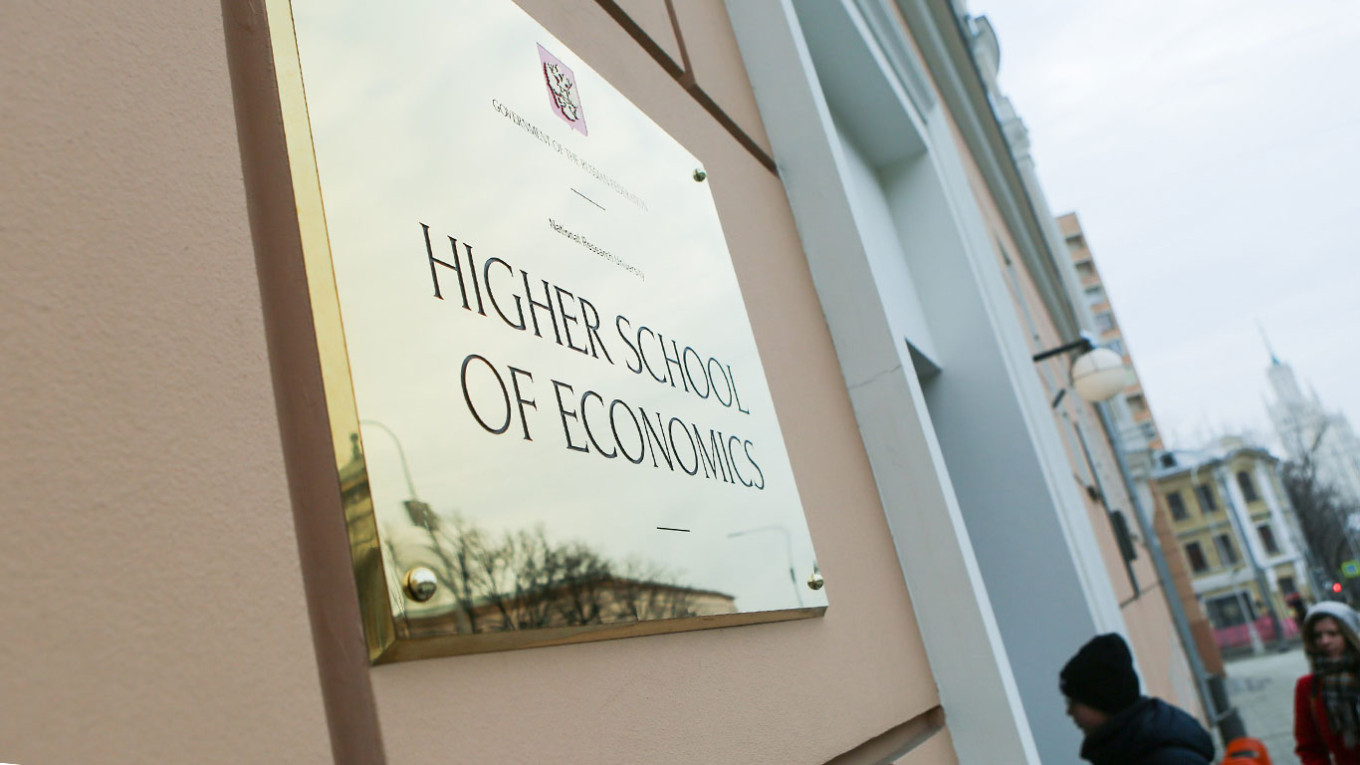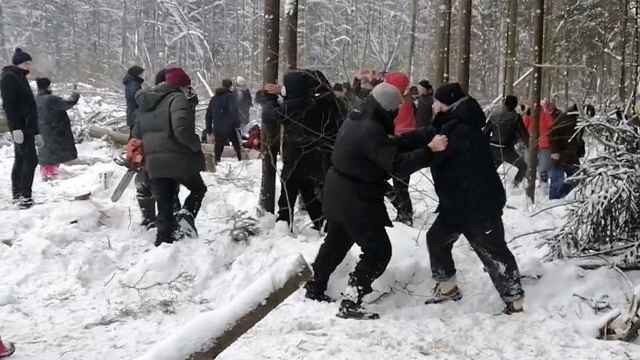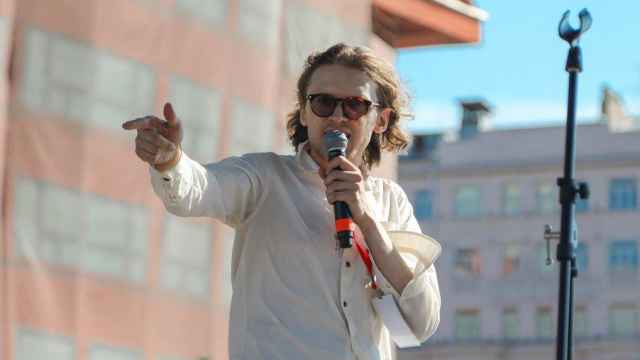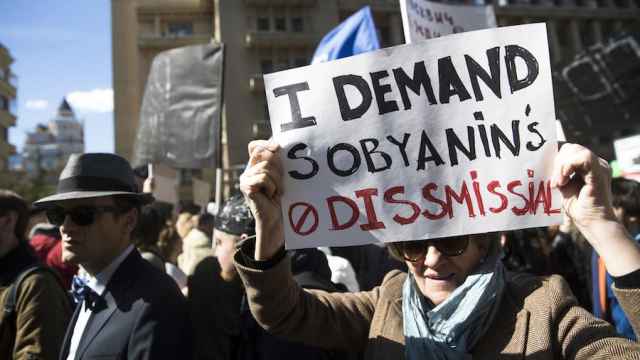On Feb. 24, 2022, a message scrawled on a flip chart in the dining room of Moscow’s prestigious Higher School of Economics (HSE) read: “No war. No sacrifice is justifiable. Peace for our brothers.”
Three years later, that same dining room would be outfitted with war-themed decorations to mark Defender of the Fatherland Day, a widely observed Soviet-era holiday dedicated to soldiers.
When Russia launched its full-scale invasion of Ukraine, many students and professors across the country voiced their opposition. But the Kremlin swiftly cracked down on dissent, making it increasingly dangerous to speak out.
While public resistance is now nearly impossible without facing repercussions, some students still find ways to express their opposition, either silently or openly.
“In the face of unprecedented pressure on the student community and the administration's attempts to fully control it, we wish HSE students to preserve their individuality and uniqueness, whether the university leadership likes it or not,” wrote Inside HSE, an independent student media outlet, in a recent post.
With nearly 15,000 subscribers on Telegram, Inside HSE is the most popular independent source of information at the university. It covers issues such as student repression and the growing militarization of HSE.
According to Inside HSE, the university administration has taken “harsh repressive measures” since the start of the war. Many anti-war faculty members were dismissed in the early months of the invasion, officially under the pretext of a full return to in-person learning following the pandemic — even though many of those professors were already living abroad at the time.
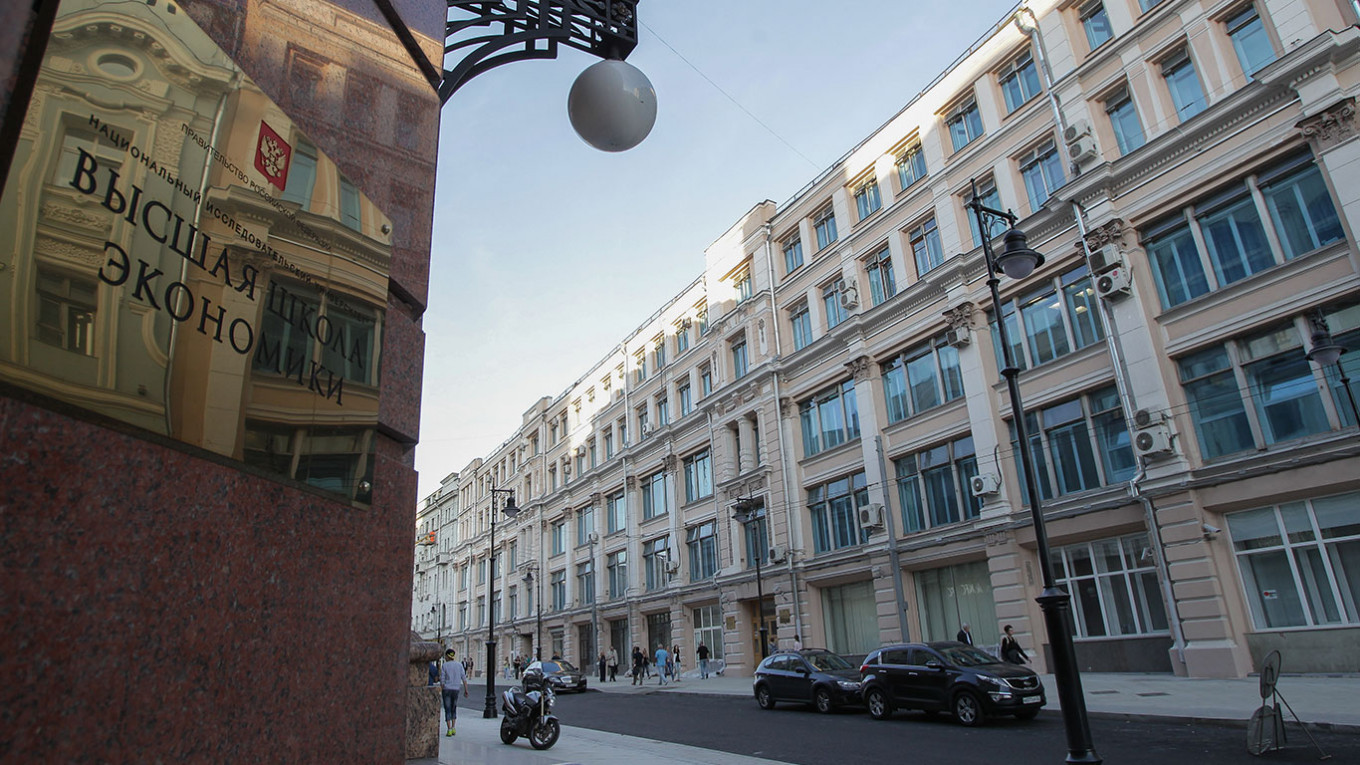
Initially, the academic community at HSE could rely on support from the Student Council and the Student Rights Commissioner. On the first day of the war, when dozens of students were detained at anti-war protests across Russia, the council and commissioner provided assistance, including submitting character references to courts and tracking detained students in real time.
“It may be hard to believe now, but in late February 2022, HSE Rector Nikita Anisimov even listened to the Student Council and excused all absences from February 24 to 26 for ‘valid reasons’,” said the Inside HSE representative.
Since then, however, HSE has become increasingly ideologized and militarized. In 2024, the administration dissolved the Student Council.
“Although it’s hard to call the Student Council part of any resistance, it was the last relatively independent voice within the university,” the Inside HSE representative said.
Inside HSE sees its mission as informing students about issues that official university channels “would likely prefer to ignore or present in a favorable light.” The outlet, which started operating in August 2022, quickly caught the attention of university administrators, who sought to identify its authors and bring it under control.
“For these reasons, we have to remain anonymous, which sometimes makes our work more difficult. It’s the only way we can do what we do while staying — at least relatively — safe,” Inside HSE said.
HSE was once regarded as one of Russia's most liberal and independent universities. While it had faced pressure from the authorities before the invasion, this pressure escalated after the war began. Now, HSE actively supports the Kremlin’s wartime agenda, with university staff frequently visiting occupied Ukrainian territories.
Student resistance is not limited to Moscow. At Kazan Federal University (KFU) in the republic of Tatarstan, a student activist group called Probel gained attention in October 2024, when Kazan hosted the BRICS summit.
Probel was formed to protest the unlawful eviction of students from dormitories to make room for security personnel attending the summit.
The activists initially stressed that they were simply protesting to keep their dormitory accommodations and were not opposed to hosting the BRICS event in principle.
“On a personal level, or rather in the more unsafe zone of thought, we certainly view BRICS with great skepticism,” Probel told The Moscow Times.
The group used satire and memes to make its case, including a screenshot from the cult video game Postal 2 to mock the bureaucratic process of submitting petitions to Tatarstan’s leadership.
Pro-government Telegram channels, university administrators and security officials pressured those involved in the protest, summoning them for “conversations” with school authorities.
In response to these threats, Probel posted on Telegram: “We are not an organization. No one stands behind us. We are just goddamn students who want to stay in the city and our dorms. We don't discuss global or serious politics. We only write about our student issues.”
After a few months, Probel announced it would “continue highlighting issues and controversial situations in student life in Kazan.” The group later made a post marking the birthday of imprisoned anarchist Azat Miftakhov — a risky move in a country that harshly punishes political dissent.
“We undoubtedly feel a certain amount of pressure related to independent initiatives. But if we live in constant fear, nothing will be achieved — and we strive for systemic change,” a representative for Probel said.
Beyond university-specific groups, broader student movements have emerged.
One of these initiatives, University Platform, describes itself as an organization that “defends students' rights and freedoms and fights for universities and research centers of the future.”
The platform claims it is open to “all proactive teachers, students and administrative staff who are against the SVO.”
Activists inside Russia are forced to use the Kremlin-approved term “special military operation” (SVO) instead of “war” to avoid prosecution.
“Our response to pro-war indoctrination should be the creation of independent local associations that fight for the rights of academic workers and students. Our response to repression should be solidarity with those who were not afraid to openly express their opinions and fight for collective rights. Do not despair — look for like-minded people locally,” University Platform wrote on its Telegram channel.
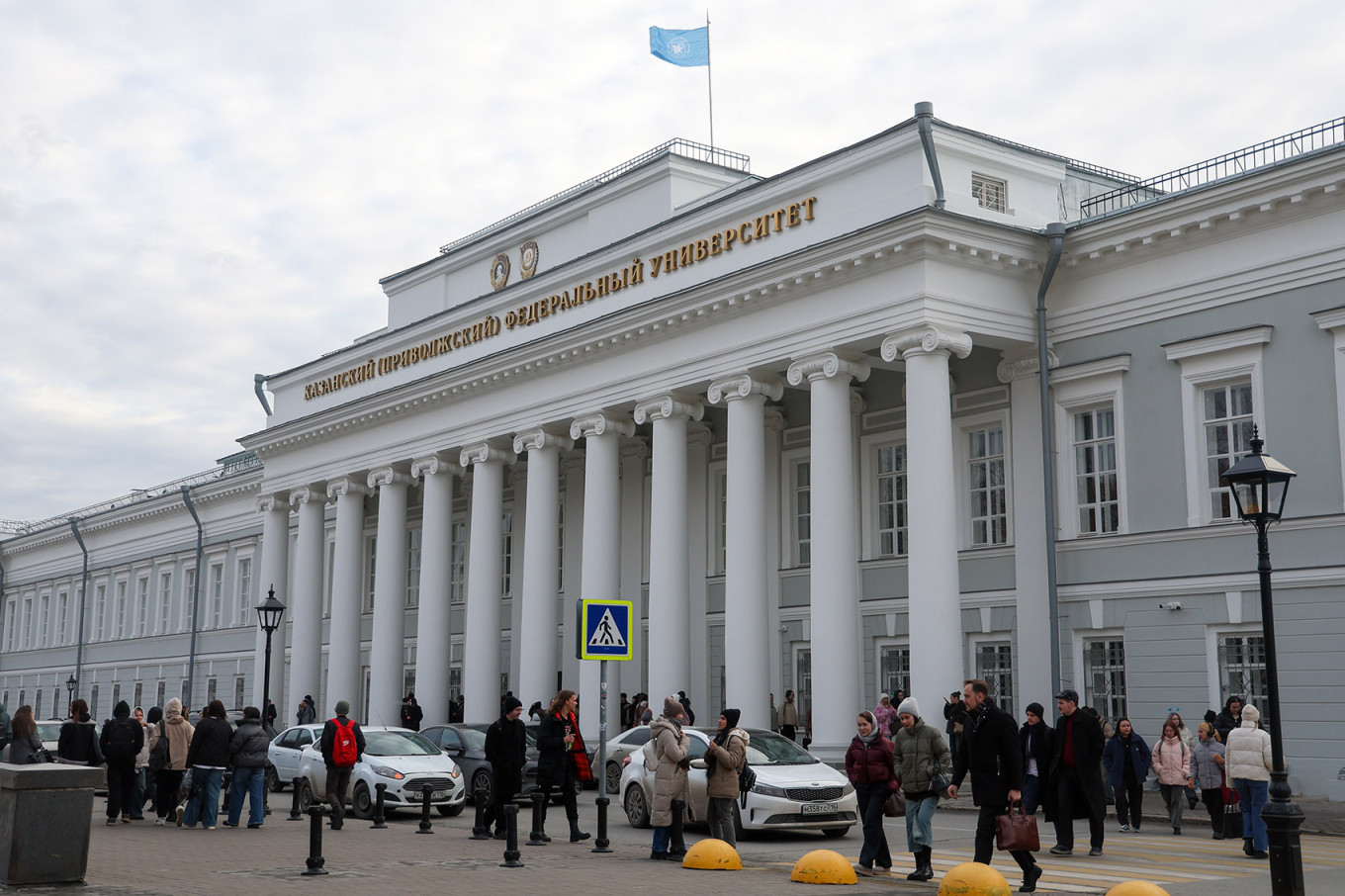
University Platform’s goals include holding elections for university rectors, preserving academic freedoms and fighting against sexual harassment and violence.
Another initiative, the Laboratory of University Transparency, or Lupa, focuses on uncovering corruption and teaching students investigative techniques.
One of Lupa’s exposés revealed around 100 cases of sexual harassment at HSE, highlighting a pervasive issue in Russian academia. Another investigation documented 89 politically motivated expulsions across 32 universities.
One journalist who trained at Lupa told The Moscow Times that the organization helped her improve her skills, teaching her how to analyze government procurement records and identify cartel collusion.
"It was useful, and I still apply data analysis skills and data journalism techniques in my work," she said.
In December 2024, Russian authorities labeled Lupa a “foreign agent.”
Leonid Spirin, editor-in-chief of the student media outlet Groza, said that almost every major university in Russia published an anti-war open letter at the beginning of the war, but expressions of anti-war sentiment were swiftly suppressed.
“For example, a week or two [after the open letter in Kazan was published], the police came to search the student who wrote it. That was all,” Spirin told The Moscow Times.
Nevertheless, students across Russia continue to operate small, independent media projects at their universities, Spirin said. He declined to name specific initiatives to protect them from unwanted government attention.
Groza has about 11,000 subscribers on its main Telegram channel and nearly the same number combined across its regional channels in Kazan, Novosibirsk and Yekaterinburg.
Authorities blocked Groza's website in September 2023 and named it a “foreign agent” two months later. Russian police have also opened a criminal case against Spirin for “discrediting the Russian army” and placed him on the wanted list.
Spirin said Groza’s “foreign agent” status does not deter students from working with it or speaking to it.
According to the state-run VTsIOM pollster, 32% of young people aged 18 to 24 view “foreign agents” as “fighters for civil rights and freedom of speech in Russia, whom the authorities are trying to punish in order to intimidate others.”
Spirin recalled situations in which Groza has published a report based on a tip from a student, and someone — even a class leader or a peer — would immediately write to Groza, trying to uncover “the rat” who leaked the information.
Still, he and his team remain undeterred.
“In this sense, the fight against us is incredibly intense. It is far more important than any foreign agency or my criminal case,” said Spirin.
A Message from The Moscow Times:
Dear readers,
We are facing unprecedented challenges. Russia's Prosecutor General's Office has designated The Moscow Times as an "undesirable" organization, criminalizing our work and putting our staff at risk of prosecution. This follows our earlier unjust labeling as a "foreign agent."
These actions are direct attempts to silence independent journalism in Russia. The authorities claim our work "discredits the decisions of the Russian leadership." We see things differently: we strive to provide accurate, unbiased reporting on Russia.
We, the journalists of The Moscow Times, refuse to be silenced. But to continue our work, we need your help.
Your support, no matter how small, makes a world of difference. If you can, please support us monthly starting from just $2. It's quick to set up, and every contribution makes a significant impact.
By supporting The Moscow Times, you're defending open, independent journalism in the face of repression. Thank you for standing with us.
Remind me later.


